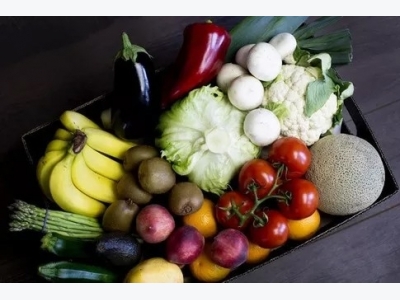Organic agriculture is more than chemicals free farming

Từ Thị Tuyết Nhung of the Việt Nam Organic Association tells Nông thôn Ngày nay (Countryside Today) that organic agriculture is a philosophy and a way of living with nature.
For most people, organic agriculture means not using chemical fertilisers or pesticides when cultivating crops or vegetables. Is this accurate?
In my opinion, organic agriculture should be understood in a much broader sense. It should not be confined to not using chemicals or fertilisers.
Organic agriculture means humans need to get close and friendly with nature, so that wild organisms can live on their own instincts. Our production system should be based on natural cycles of the eco-system and soil conditions of each locality in such a manner that its biological diversity is not lost. Plants and domestic animals and humans should co-exist.
In short, organic agriculture focuses on the health of the earth, the eco-system and humankind as a whole. Certainly, there is no space for chemicals, fertilisers or genetically modified organisms in organic agriculture.
In Việt Nam, organic agriculture was done in accordance with a set of technical standards like TC 602, which were issued in December 2006 by the Ministry of Agriculture and Rural Development. The TC 602 was replaced by the TC 11041 issued by the Ministry of Science and Technology in 2015.
If the TC 602 focused on inputs for cultivation, TC 11041 went into detail on what organic agriculture is in a way that producers/farmers would understand what they should do with their crops so that their produce could be certified them as organic by authorised agencies.
What are the essential conditions for practicing organic agriculture?
There are four main conditions, the first of which is health.
Organic culture must maintain and boost the health of the soil, plants, animals, people and the planet. This means that the health of an individual and a community should be equal. They are part and parcel of the ecosystem. A strong earth will give good conditions for plants to grow healthily. As a result, they will give good health to the people or animals that consume the plants.
Second is the eco-system. Agricultural production must be based on the cycles of the eco-system. In other words, a good eco-system will be a good foundation for a good crop; a good environment for domestic animals to develop healthily.
Third, is balance. Organic agriculture needs to happen in a harmonious environment for all organisms living in it. This is harmony between people and their environment.
And finally, the management of organic agriculture should follow preventive methods to ensure a sound environment and good health for present and future generations.
To implement these four principles of practicing organic agriculture, which were introduced by the International Federation of Agriculture Movements (IFOAM), organic farmers should follow these guidelines: keep the farm bio-safe, diversify the agricultural eco-system, follow nature’s law, prevent pollution from intruding into their farm and ensure self-supply of production materials and nutrition within their land.
What are the challenges that organic agriculture faces?
The most challenging factor at present is that up to now, the Government has not issued any official instructions on organic agriculture. Farmers who practice it simply do it to the best of their understanding and then sell their produce to consumers.
This is a big challenge for both farmers and consumers. In my opinion, in the end, the farmers will lose this battle!
What should the Government do to encourage organic agriculture?
First of all, the farmers want a set of national standards on organic products. And in the long run, the National Assembly should promulgate an Organic Agriculture Law.
In addition, Government agencies should adopt a strategy on training human resources specialised in this field, including organic agriculture inspectors. Farmers practising organic agriculture want the Government to adopt a financial support package for them through mass organisations, including the Farmers’ Unions, the Women’s Union, Farmers’ Co-operatives and others.
Có thể bạn quan tâm
 Pesticide product market dominated by foreign manufacturers
Pesticide product market dominated by foreign manufacturers The domestic pesticide market is worth up to $1 billion, but profits all go to foreign companies as 90 percent of products are imports.
 Vinamilk tops most valuable firms list
Vinamilk tops most valuable firms list Forbes Việt Nam yesterday announced Vinamilk topped the 40 most valuable companies in the country with a value of more than US$1.7 billion
 Agro-forestry-fishery exports valued at US$17.1 billion in the six months
Agro-forestry-fishery exports valued at US$17.1 billion in the six months The export turnover of Agro-forestry-fishery was estimated at US$2.97 billion in June, bringing the total export turnover of the first six months of 2017